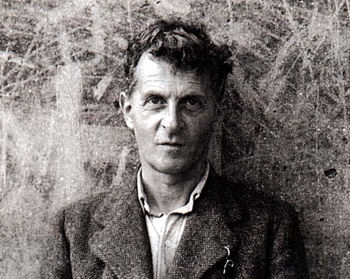 Portraits of Wittgenstein is a major collection of memoirs and reflections on one of the most influential and yet elusive personalities in the history of modern philosophy, Ludwig Wittgenstein. Featuring a wealth of illuminating and profound insights into Wittgenstein’s extraordinary life, this unique collection reveals Wittgenstein’s character and power of personality more vividly and comprehensively than ever before.
Portraits of Wittgenstein is a major collection of memoirs and reflections on one of the most influential and yet elusive personalities in the history of modern philosophy, Ludwig Wittgenstein. Featuring a wealth of illuminating and profound insights into Wittgenstein’s extraordinary life, this unique collection reveals Wittgenstein’s character and power of personality more vividly and comprehensively than ever before.
With portraits from more than seventy-five figures, Portraits of Wittgenstein brings together the personal recollections of philosophers, students, friends and acquaintances, including Bertrand Russell, G. E. Moore, F. R. Leavis, A. J. Ayer, Karl Popper, Friedrich von Hayek, G. H. von Wright, Rush Rhees, Freeman Dyson, G. E. M. Anscombe, Iris Murdoch, Mary Midgley and Mary Warnock. These authors testify to the life-long influence Wittgenstein had on the lives of those he met. Their fascinating memoirs, reflections and commentaries, often at odds with each other, reveal Wittgenstein’s kindness, and how much genuine friendship meant to him, as well as his suffering and despair. They show too how the philosopher’s ruthless honesty and uncompromising integrity often resulted in stern advice and harsh rebukes to friends and foes alike.
Now revised and updated, Portraits of Wittgenstein includes new selections, revised contributions, photographs and maps that provide historical context to Wittgenstein’s relationships with his intellectual and social circle. This collection of valuable and hard-to-find material is an indispensable resource for scholars and students of the life and work of Ludwig Wittgenstein.
Volume I
Editors’ Prefaces
Maps
Part I
1. Context, Family and Early Years
2. Cambridge, Iceland and Norway
Part II
3. The First World War
4. Wittgenstein and Homosexuality
5. Elementary School Teacher and Architect
6. Wittgenstein and the Vienna Circle
Volume II
Part III
7. Return to Cambridge
Part IV
8. The Second World War
9. Last Years as Professor of Philosophy
10. Wittgenstein and Ireland
Part V
11. Last Years
12. Assessments of the Man and the Philosopher
Notes on Contributors
Acknowledgements
See more at:

 This edition
This edition Previously unpublished notes taken by Yorick Smithies at lectures by Ludwig Wittgenstein between 1938 and 1941 at Cambridge University will be published later this year, according to a press release from the Austrian Science Fund FWF.
Previously unpublished notes taken by Yorick Smithies at lectures by Ludwig Wittgenstein between 1938 and 1941 at Cambridge University will be published later this year, according to a press release from the Austrian Science Fund FWF.
 Wittgenstein’s Lectures, 1932 – 35, Edited by Alice Ambrose, publ. Blackwell, 1979.
Wittgenstein’s Lectures, 1932 – 35, Edited by Alice Ambrose, publ. Blackwell, 1979.

